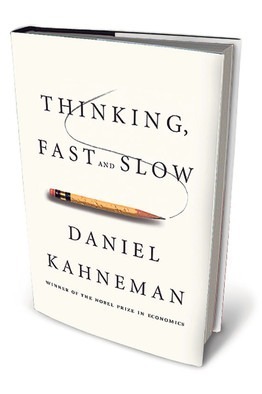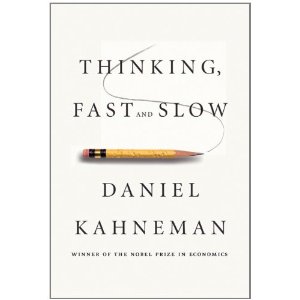Posts Tagged ‘Daniel-Kahneman’
Why Agile Minds Deploy Both Rational and Intuitive Problem-Solving
A rare aha moment in 2011 set me chasing new problem-solving research. The study Rational Versus Intuitive Problem-Solving: How Thinking ‘Off the Beaten Path’ Can Stimulate Creativity published in Psychology of Aesthetics, Creativity, and the Arts stung me out of a spot of intellectual arrogance. From my perspective, John Dewey’s 19th century step-wise
Read MoreDaniel Kahneman on the Need to Think Slow (at times)
So Much for Snap Decisions (The Wall Street Journal): — “How is it that so many people make decisions that, from their perspective, seem so right—and turn out so wrong? Blame it, in part, on thinking “fast.” — “On some occasions, when the stakes are high, examining the evidence more systematically—especially the evidence that makes…
Read MoreHow cognitive illusions blind us to reason
Fun article by Daniel Kahneman based on his new book,Thinking, Fast and Slow. How cognitive illusions blind us to reason (The Guardian): Why do Wall Street traders have such faith in their powers of prediction, when their success is largely down to chance? Daniel Kahneman explains. — “Looking back, the most striking part of the…
Read MoreMind Teaser: Consider Linda
(I hope you enjoy this very revealing mind teaser!) Please consider Linda, a 31-year-old woman, single and bright. When she was a student, both in high school and college, she was deeply concerned with discrimination and social justice, and also participated in anti-nuclear protests. Which is more probable about Linda’s occupation today? (a) Linda is…
Read MoreBrain Fitness @ Education, Training, Health events
In what category does Brain Fitness fit? Education, Productivity and Training, Health? Most of the interest so far has come from a Healthy Aging angle, but we are starting to see broader interest, as in the events below. After all, isn’t working on our brains relevant to all those markets?. 2 busy weeks: I am…
Read More


